Oliver Nelson – The MusicTech Interview
With a studio setup just like yours and ours, Oliver Nelson can not only offer production advice on his successful nu disco productions, but also has a lesson for all of us on how to make it in music production in the 21st century. MusicTech sits down with the man who has mastered the media… […]
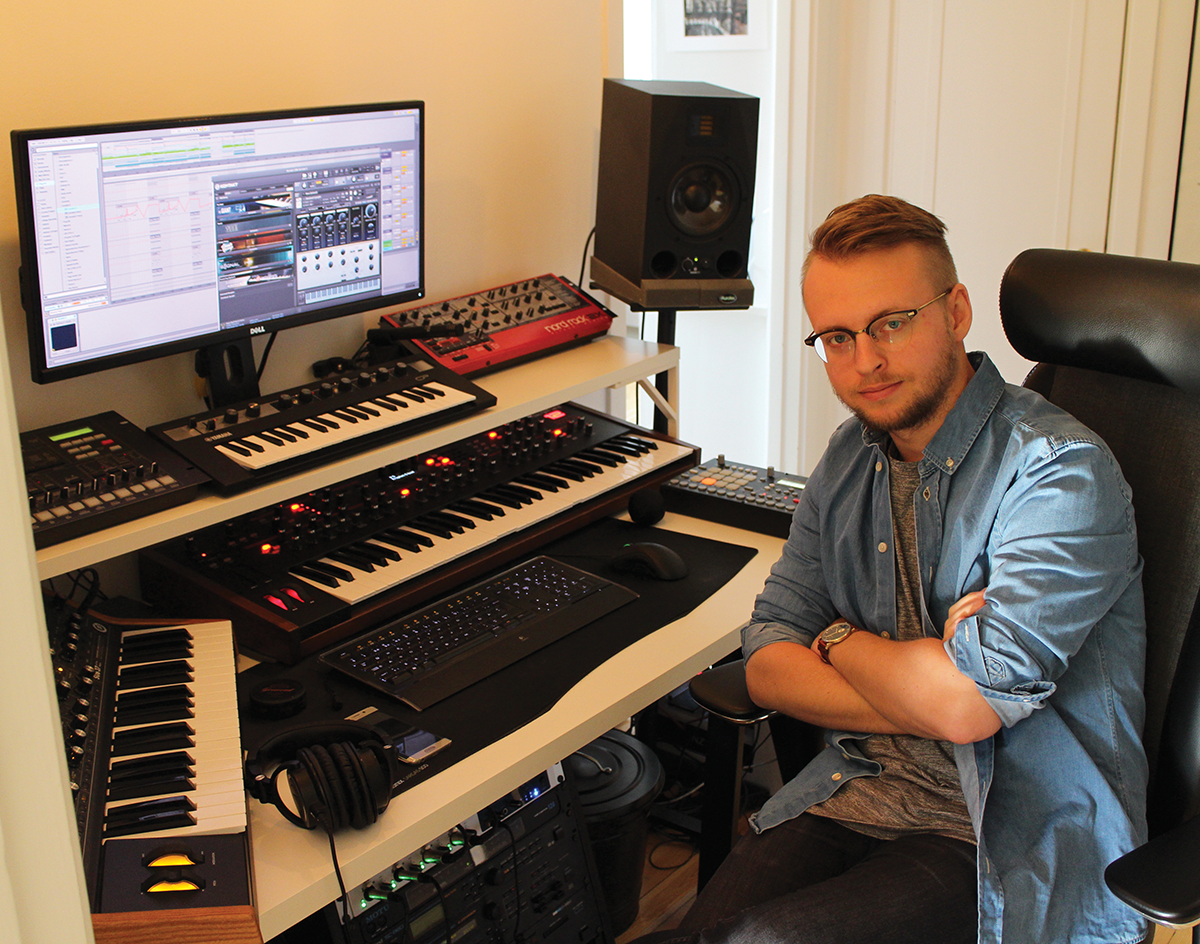
With a studio setup just like yours and ours, Oliver Nelson can not only offer production advice on his successful nu disco productions, but also has a lesson for all of us on how to make it in music production in the 21st century. MusicTech sits down with the man who has mastered the media…
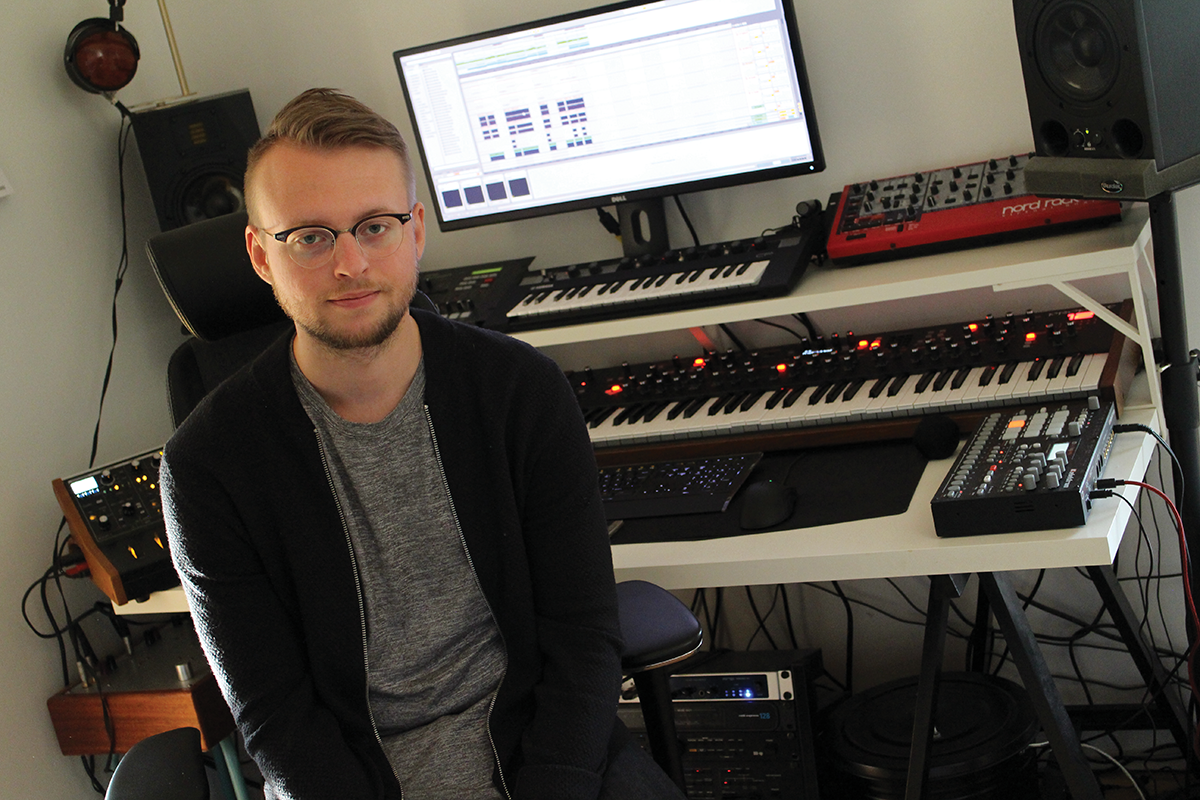
The phrase ‘up and coming’ is often thrown lazily at any artist releasing their first recording on a major label. But while Oliver Nelson is most definitely doing the latter – his first release on Polydor, Found Your Love, should be out as you read this – he is not exactly new to music production, having amassed a huge social-media following with a stream of remixes and productions, way before the single came out.
Indeed, the 25-year-old Swedish producer is giving us all a lesson in how to carve a career in music making today. Before the single came out, Nelson had notched up millions of plays across various platforms. Found Your Love had scored over 1.5 million plays on SoundCloud, while his reworkings of tracks by Janet Jackson, The Knife, Marina And The Diamonds and Whitney Houston among others have scored nearly 100 million plays on SoundCloud and YouTube: his remix of Justin Timberlake’s Suit & Tie garnered 16 million alone. So how has this young producer already made a name for himself before his first release? Well, let’s start at the beginning…
MusicTech: How did you get into music production?
Oliver Nelson: My brother started playing drums when I was a kid. He was both my role model and inspiration, so I jumped on the drums myself and found my love for creating beats and rhythms. My parents were heavily interested in music, so in turn you could say my whole family were, and are, a huge influence. My first major step I took myself was deciding to attended a music high-school and that led me to start making my own music.
MT: From there, then, how did you break through to become successful?
ON: I met my manager and we formed a great personal and professional relationship. He helped me find remixes and I worked tirelessly to make them as perfect as I could, and then they kept coming and raised my profile. He worked for Sony for 12 years, so it’s a perfect combination of our very contrasting talents. He provided the advice I needed to help me make the transition from amateur to professional. Hard work, determination and passion are my personal key drivers.
MT: Tell us about your first production setup…
ON: My good friend Jakob introduced me to my first music-software program when I was 17. It was fresh and fun; we just played around and my interest grew from there. I was amazed by the fact that making music digitally has infinite possibilities.
I know electronic music production has been around for a while, but I’ve embraced modern techniques that come with improvements in technology and software. You have to move fast in this dynamic, competitive and rapidly paced environment.

MT: So it was really the possibilities that technology offered that drew you into production?
ON: Yes, absolutely! I couldn’t do what I do without today’s technology. I don’t see any problem with it, I’m just happy there’s an easier way today for a creative mind to do what he or she wants to do in terms of music.
Computers have really revolutionised modern music making. I do everything in front of my computer with some outboard analogue gear, but even so, I control those with plug-ins. I’ve always been interested in computers, so it suits me perfectly. It’s also much more effective and more advanced than working with, let’s say, a mixing desk and analogue recorders, even though that equipment has its own charm.
MT: How does it feel to have this much power inside a computer?
ON: When you think about it, it feels quite strange, actually. I think it’s amazing what you can do on a computer nowadays. The fact that you can do what you love and make a living out of it is really cool, especially when you don’t need that much. A computer, a MIDI keyboard… and you can be set for life. That’s the modern age, but you need passion.
The Oliver Nelson Studio
MT: So which software did you use back then compared to now?
ON: I used Reason in the beginning, but then went over to Ableton and became a massive fan. I think that as they are so dynamic and always updating, we could be pals for a long time.
MT: What else do you have in your setup?
ON: I’m working on my PC desktop in my home studio. My main synth is my Prophet 12 that goes along my other ones like the Moog Sub 37, Roland D-50, Yamaha Reface CP, Korg MS2000, Roland JV-1080, Elektron Analog Rytm, Nord Lead 2X and more, all going through my RME Fireface 802.
MT: That’s a great list of hardware – both old and new – but you also use a lot of software, What do you like about each method?
ON: It’s the simplicity with software! To be able to start your DAW and start using your favourite synth in seconds is a dream – there’s always some hassle with using analogue synths, but it goes both ways, I guess.
You also get the unreliability with software, not knowing when things are going to crash, and even if you save every five minutes, you never know if every little tweak is going to be the same as where you left it last time after a restart. It’s happened a lot that one soft synth has a totally different preset after a restart, and hours of work is lost. That never happens when I use my external synths.
MT: Is there anything on your studio shopping list?
ON: On top of the wishlist right now is a new laptop. I’m working on my bad-boy desktop, but now when I’m touring all the time and meeting other artists and vocalists for collaborations, my desktop is useless. I do have a good laptop, but I don’t find it as powerful as I need it to be. So I guess one of the things on my wishlist is the new MacBook Pro. Must work harder (laughs)!
MT: What would you like to see developed in production technology?
ON: My top wish right now is a good software I can use for my Analog Rytm to drag-and-drop drum samples to it and use directly within Ableton. At the moment, it’s just possible to transfer samples to it outside of the DAW, but the problem is that I have so many samples I want to use, and different samples in different projects.

MT: What about playing live? Do you take any of this tech out on the road?
ON: I’ve always admired people using computers live, like Madeon, playing his live sets with a controller. I’ve not come to that point yet and I don’t know if I ever will, but I do respect people doing it.
MT: But you have dabbled in DJing…
ON: I started out with using Traktor, but to be honest, I had too many problems using it. It can be a pain with an external soundcard, all the cables etc. Especially if you are going up directly after another DJ and want to make a smooth transition between the sets. I now DJ with USB sticks; it seems to be the safest and handiest way of doing it. It is easy to travel with and using it with rekordbox is just really easy and fun.
Selected kit list
Ampsandsound SE-84
Audeze EL-8
Audeze LCD XC
Audio Technica ATH-50x and M70x
DSI Prophet 12
Elektron Analog Rytm
Korg MS2000R
Moog Sub 37
Nord Lead 2x
RME Fireface 802
Roland D-550
Roland JV-1080 and 880
Yamaha Reface CP
…plus girlfriend, to make me have breaks
Oliver Nelson Advice
MusicTech: What advice do you have for people wanting to get into remixing/production?
Oliver Nelson: Just find software you feel comfortable with. Most programs do the same things, just in different ways and with varied designs. A very important thing is to learn stuff by yourself, and be very patient. It takes many years to learn and perfect the craft. I’m still learning new things every time I work on a new track. That is also why I love to work with electronic music, there’s always something new to learn and the techniques are always improving and going forward. You need to move at the same pace and roll with it.
MT: What about advice for making a living in music production?
ON: The music industry has changed massively the last 10 years. Artists have gone from making money from selling records to earning money from streaming and having big followings on social media, etc.
I believe that music should be accessible to all people, despite what their income allows them to do, but the royalties need to be fair. A lot of people all over the world might not be able to afford to subscribe to Spotify or Apple Music.
There’s loads of ways of making money as a musician; it might be harder making the big bucks today, as the main income will be selling out arenas. Although, as a smaller artist like me I can still make a living out of what I do, even though I’m mostly getting traction on SoundCloud, which doesn’t give me any direct income, but rumour has it, that’s about to change…
So just keep doing it because you love it, work hard and it will come. I didn’t start producing music because I planned on making a living out of it, I just made it because it was a big passion for me. The rest is just a bonus. It takes time and you have to believe in your own talent and it will happen, sooner or later. That way of thinking can be applied to all kinds of creative work…
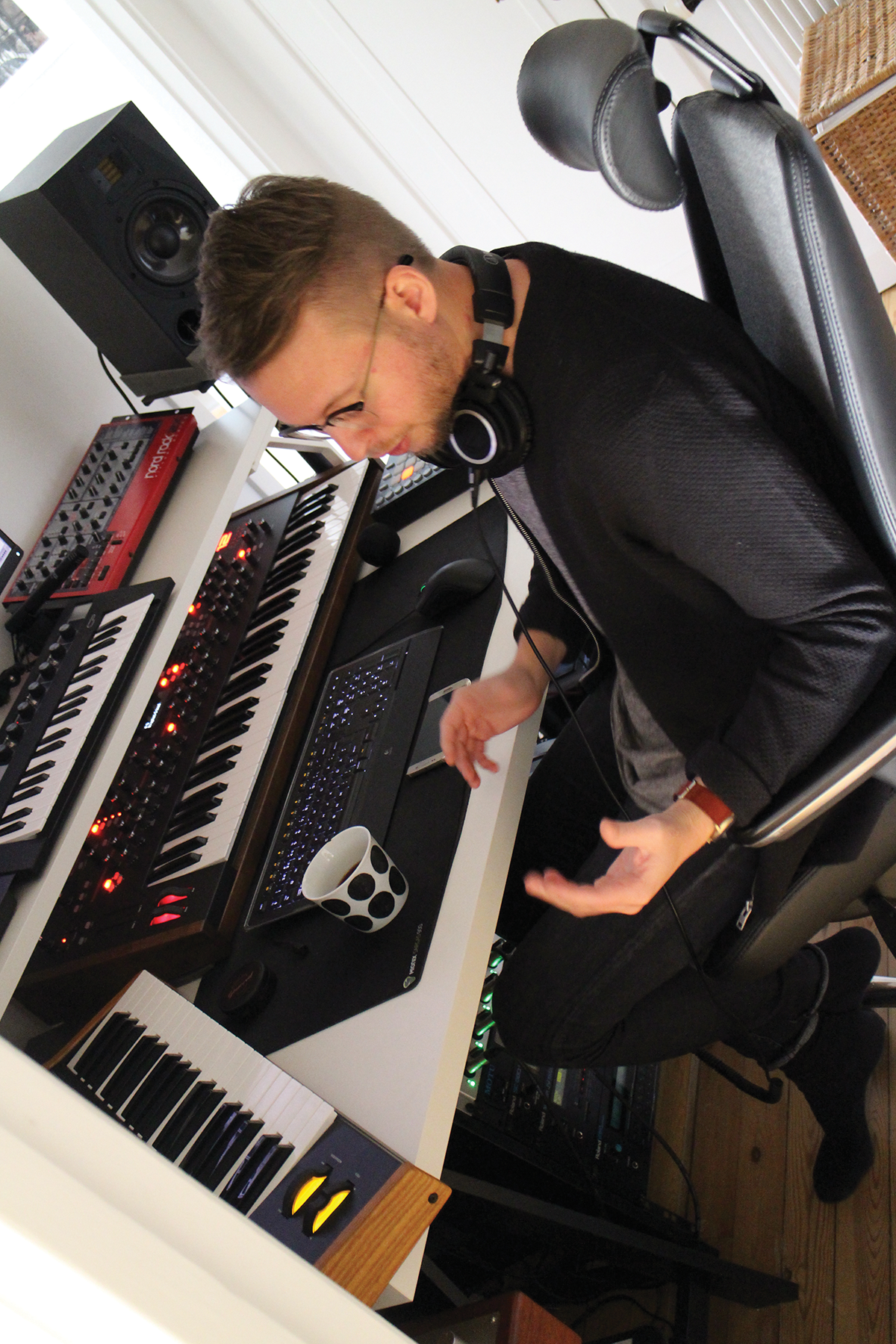
MT: What about using social media to help your profile – any tips?
ON: I have been a user of SoundCloud for a long time and it got me where I am today. I think it’s in anyone’s right to upload and market their own music, if it’s not bootlegs. I’m fascinated by the way the industry has changed from consumers buying CDs and downloads to streaming music online.
MT: Finally, with such success in the area, what advice would you give to use social media to get a following and raise your profile?
ON: The foundation of any success in this industry at its core is the music, so initially, I didn’t take social media into consideration as much as I do now. The plays I have gathered online have played a very big part in my career. Justin Timberlake’s Suit & Tie and Ella Henderson’s Ghost gave me a lot of exposure via social media and YouTube, and have opened many doors. As I’ve grown in popularity, it’s become really important to engage with my fans and to keep them up to date.
Above all else, it has to be about the music! Focus hard on producing your best work with every track. If your music is good, then it makes creating and growing a social-media presence much easier. People will naturally want to share things with others that make them feel good, or that they genuinely enjoy.
It’s also important to have a solid identity and to reflect this in your brand, think about what defines you as an artist and what makes you different and promote that. Last but not least, it’s crucial that you try your best to stay connected to your fans, the people that support you. Keep them updated, share pictures and updates with them, reply to comments and be yourself, be relatable.
Oliver Nelson’s Plugins
Oliver details his favourite software instruments and effects…
Plug-in synths
I have four favourite ‘go to’ plug-in synths:
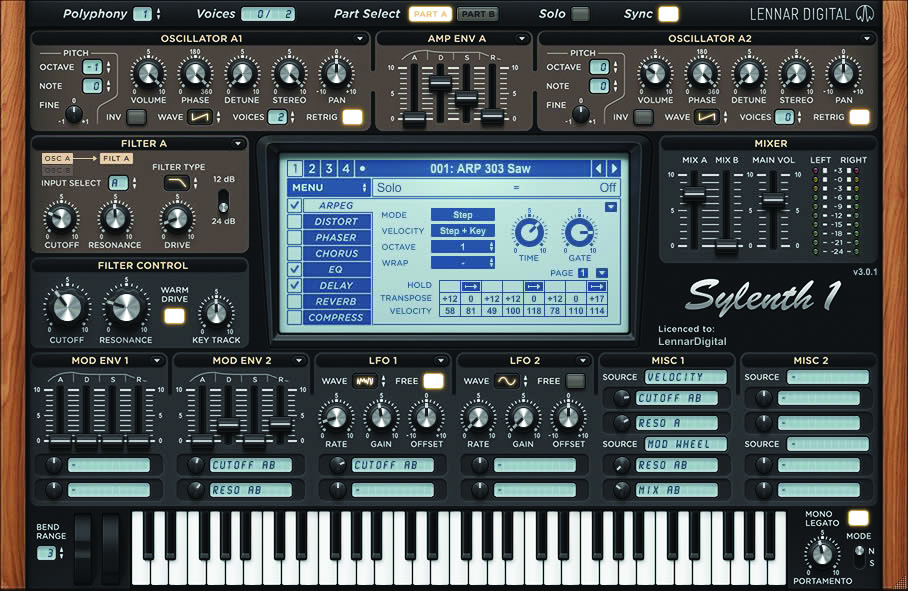
LennarDigital Sylenth1: The first software synth I used and I was totally blown away by how amazing it sounded. The fact is that I have never really found any other one that could match that sound quality; maybe DIVA, but for me, Sylenth1 takes the money. It also has a sentimental value for me, as it’s one of my first and I use it in almost every production.
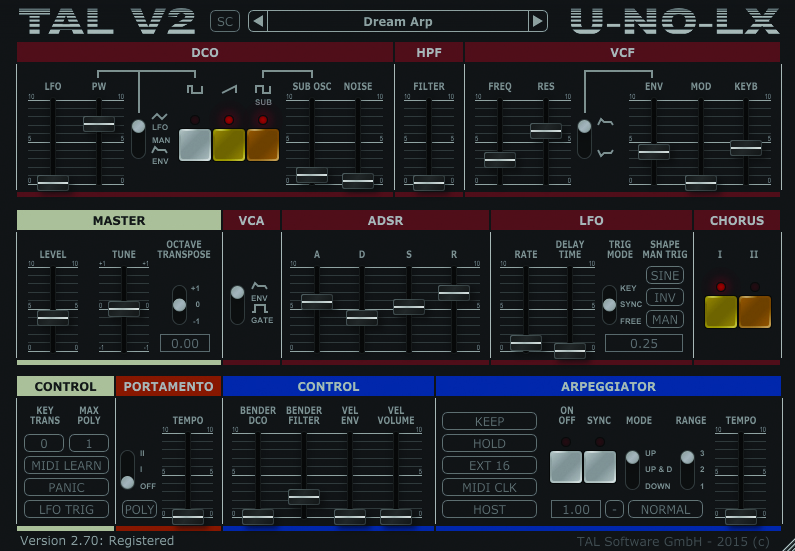
TAL U-NO-LX: I’m a huge fan of the Roland Juno 60 and TAL Uno does a great job simulating its sound – I don’t need to say any more than that.
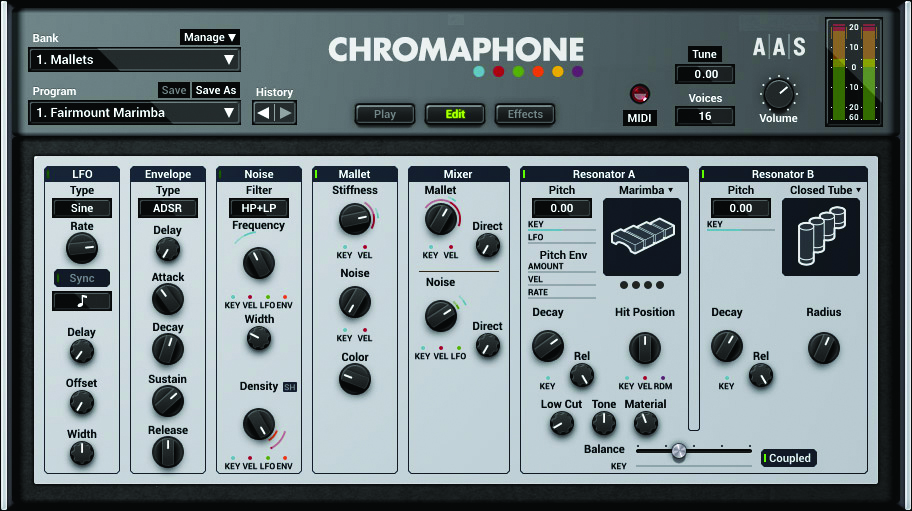
AAS Chromaphone: I love my marimba and this is an absolutely amazing plug-in to go to for those kind of sounds. Anything plucky, realistic sounding, it’s your best friend. Probably my number-one favourite.
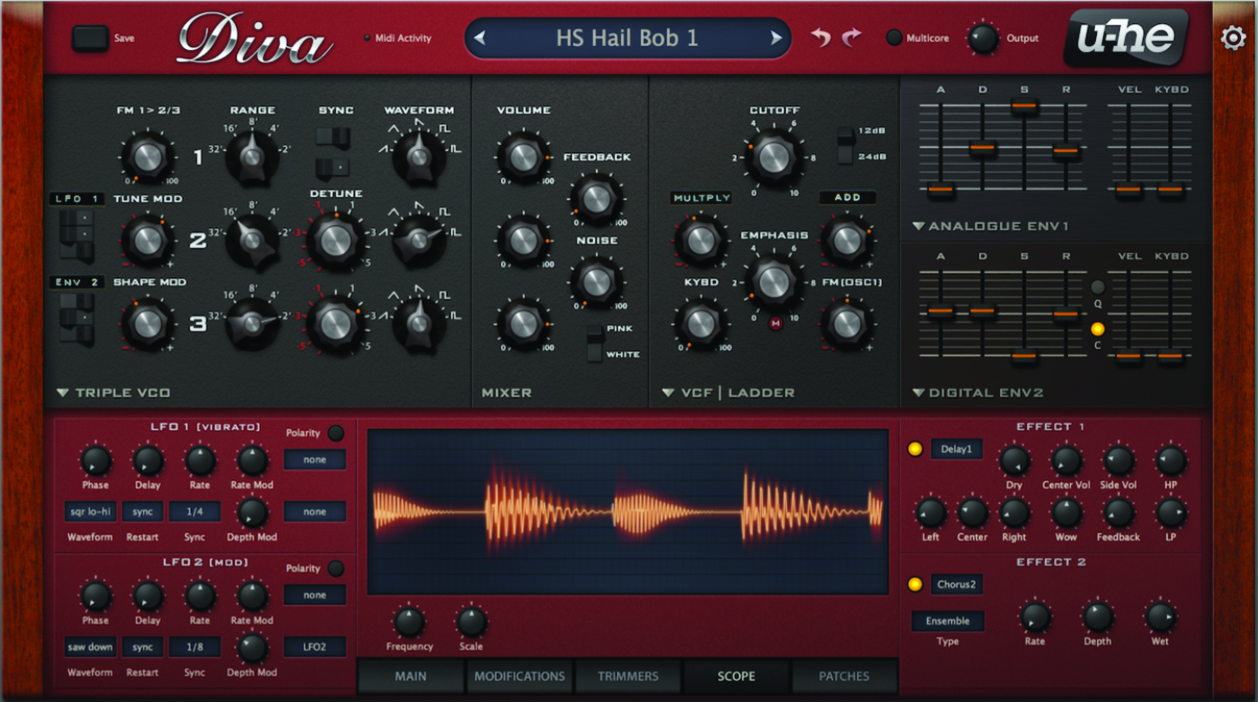
U-He Diva: This is the best soft synth for an analogue sound. It has a very rich character and amazing presets and expansion packs. It always works in any kind of production, whatever genre it might be.
Plug-in effects
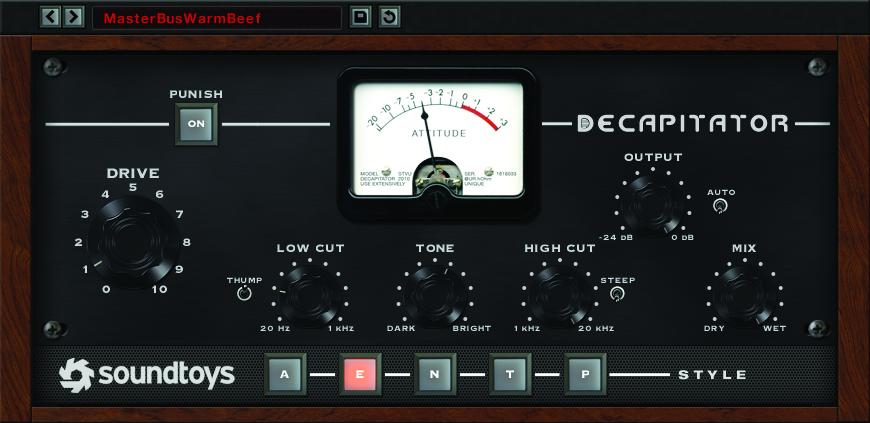
My absolute favourites are the Soundtoys plug-ins. They are just all-around amazing-sounding effects. The Decapitator is the best saturation plug-in out there in my opinion, along with PrimalTap, which I use a lot on leads to make them more interesting. MicroShift is also a plug-in that I always use on vocals.

I also use FabFilter’s Pro-Q 2, a really good EQ plug-in that has a really simple interface. For reverb, I always use Valhalla’s plug-ins, especially its VintageVerb, which sounds incredible. I use it on everything from synths to percussion. It has a very warm, round sound that makes every difference.
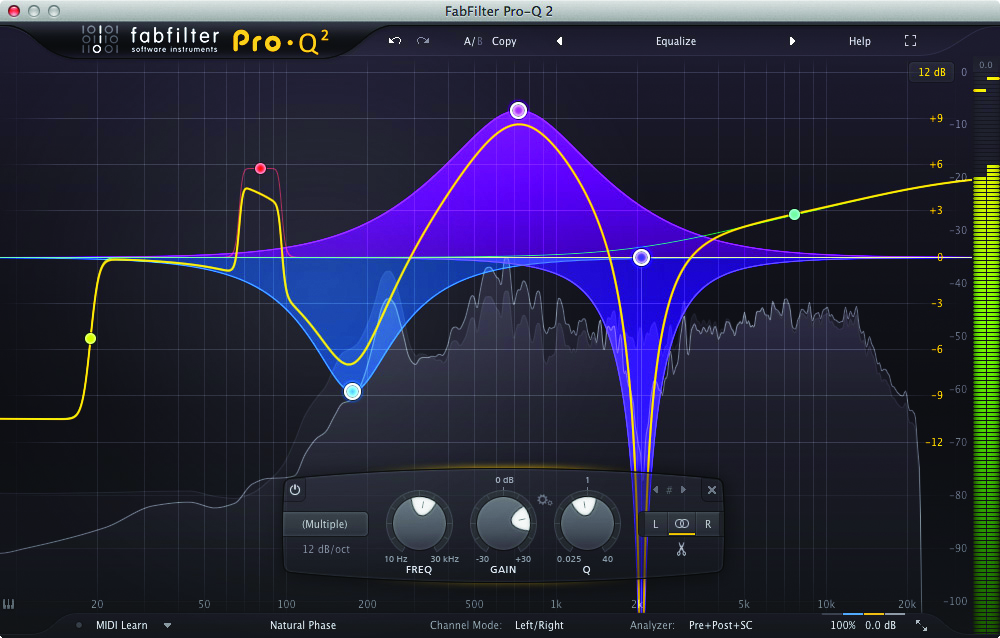
Then there’s D16 Group’s Decimort. Best bitcrusher out there! I use it to make things sound more analogue, and there’s a ton of ways you can use it. It works very well with vocal leads and guitars.

Oliver Nelson Productions
MT: What would you say inspires a typical Oliver Nelson track?
ON: Everything I’m into at the moment, usually the tracks that stick with me scrolling through Spotify. Also, everyday things that happen and feelings affect the outcome of the music I’m making.
MT: How does a track usually come together?
ON: I usually start with chords, with a simple piano or synth around a vocal, and lay down some simple drums so you get the hang of the composition. It’s like a basic skeleton that you then add things to and build, from the foundation up. The most important basic thing with a track is the chords – but with dance music, the drums obviously play an essential part as well.
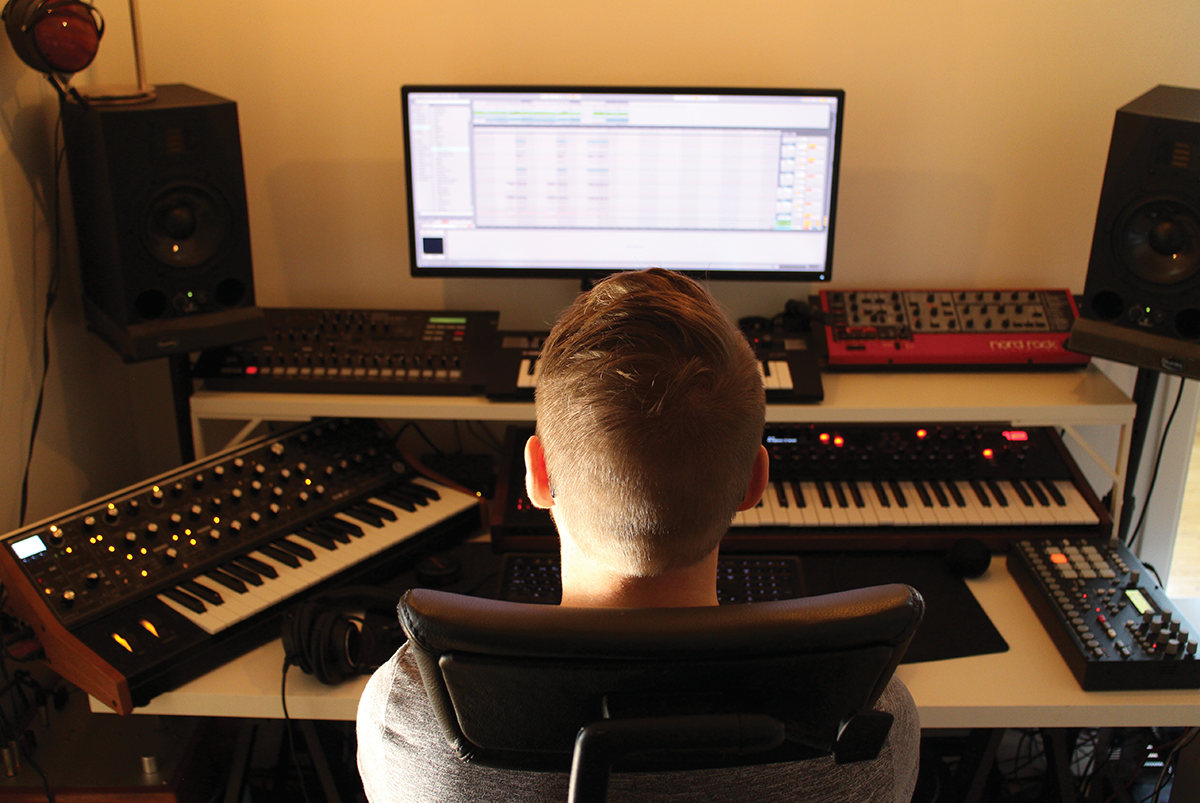
MT: What do you think makes your sound and what production tricks do you use to get it?
ON: I think what has made my sound is the drums, in combination with a certain type of vibe in the chords. I tend to spend a lot of time on said drums (being an old drummer myself), and can sometimes find myself sitting for hours working on small details like drum fills etc, (laughs).
I’m also a big fan of a nice rhythmic groove in the chords, that’s just what I like and it’s always in the back of my head when I write something. I also am a perfectionist when it comes to every sound, my manager loves this about me, but also thinks I can keep going on some things just that little bit longer, when I don’t need to.
MT: Tell us about the new single…
ON: Found Your Love features vocals from Heir aka Skogsrå. It wasn’t really meant to be my first single initially, it was just some chords that I made jamming on my piano, but everyone seemed to love the chords, so I just kept working on it. The track is a funky nu disco tune with a fat beat!
My next project is a single with my good friend, and Perfect Havoc management colleague, Tobtok – which I’m working on as we speak. It’s a solid mix between our unique styles and has a great pop/dance sensibility. It’s a more uptempo track than my usual stuff, and It’s going to rock. This year, you guys are gonna see a new side of me, with more experimental and varied productions.
MT: Is there anyone else you’d like to work with?
ON: I’ve been a big fan of Gallant’s Weight In Gold which, in my opinion, was one of 2015’s best tunes. I also love Honne and am a big fan of Dusky & Rüfüs’ latest material.
MT: Finally, then, what musical plans do you have for the future?
ON: I’m really excited about touring regularly, but it’s basically a balance between that and recording. My plan is just to keep making as much music as possible and do what I love. I’m focusing on original music right now, more than remixes, and can’t wait to show you what I have been doing.
Oliver Nelson Ft. Heir’s Found Your Love is out now on Polydor Records. Visit Oliver’s SoundCloud page at: soundcloud.com/olivernelson